Troubled arts venues get £14m Arts Council bail-out
- Published
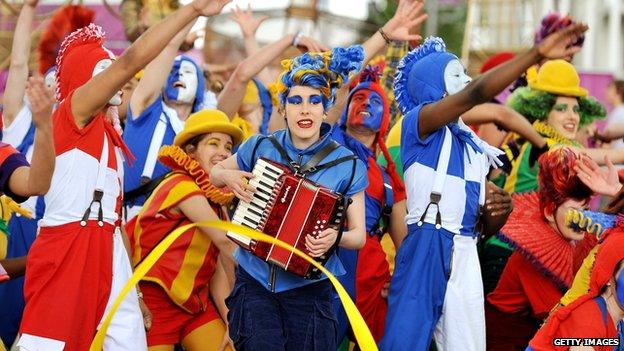
The National Youth Theatre received £680,000 in 2012, when members performed at the London Olympics
More than 50 theatres, galleries and other arts organisations at "serious financial risk" have received emergency grants totalling £14m from Arts Council England over the past three years.
The Hull Truck theatre, which got £1.5m, was among the main recipients.
Northern Ballet, the Cambridge Junction and the National Youth Theatre have all received at least £680,000 since 2011.
However, Arts Council England has not named the most recent beneficiaries because of "commercial sensitivity".
Many arts organisations have struggled in recent years from a combination of government and local council cuts, a tough climate for private sponsorship and squeezed household budgets.
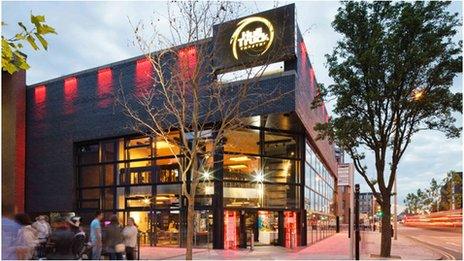
The Hull Truck theatre struggled after moving into a new £15m building in 2009
Arts Council England's system of emergency "financial intervention" is intended for organisations that receive annual funding but which have run into trouble.
To receive financial intervention, the criteria, external say venues will be "assessed as high risk" and "at immediate and serious financial risk".
The Arts Council steps in where it believes an organisation is "irreplaceable", where other forms of support have failed and where it is confident the cash injection will turn the situation around.
The £14m has been paid to 55 theatre, art, music, dance and literature organisations over the past three financial years.
The Arts Council has named the cultural venues and producers that received such funds in 2011/12 and 2012/13.
But 12 of the 13 beneficiaries in 2013/14 have not been identified because it could "prejudice the commercial interests of the organisations concerned".
The only recipient to have been named from the most recent financial year was Hull's Truck theatre. It received a £300,000 grant in February 2014, a city council document recently revealed.
That was one of seven such emergency Arts Council grants given to the Hull theatre since March 2011, totalling £1.505m.
The venue got into financial trouble after moving to a new £15m building in 2009 and after long-serving artistic director John Godber departed the following year. Hull is due to be UK City of Culture in 2017.
'Breathing space'
Hull Truck's executive director Janthi Mills-Ward said: "Being the second-lowest funded producing theatre in the Arts Council's National Portfolio, alongside a difficult economic climate, it has been necessary to secure additional support."
The extra funding has ensured "ongoing financial resilience to produce the very best work," she said.
Recent concerns about funding outside the capital are reflected by the fact that several of the biggest bail-outs have gone to organisations outside London.
Other large grants include £750,000 to Northern Ballet in 2012 to cover increased running costs at its new £12m home in Leeds, which it shares with Phoenix Dance Theatre and which opened in 2010.
Northern Ballet chief executive Mark Skipper said the grant gave the company "the breathing space we needed to make the transition to running a major new building" and that the company had also increased its ticket sales and other forms of fundraising.
Financial weaknesses
The Cambridge Junction, which stages gigs, comedy, plays and club nights, received £700,000 in 2011. Its director Daniel Brine explained that it had faced "a period of financial instability" that year.
"This was a result of some long-standing financial weaknesses coupled with a shift in trading at the time of the global financial crisis," he said. A new business model has made the venue "stronger and more financially resilient" he added.
The London-based National Youth Theatre of Great Britain got two grants totalling £680,000 in 2012 to deal with "major issues" with its finances, according to chief executive Paul Roseby.
It achieved "a rapid return to financial and organisational health" after a restructure of its management and an increase in private funding, he said.
Recession's impact
Two grants totalling £510,000 went to Northampton's Royal & Derngate theatre in 2012 and 2013. The venue's chief executive Martin Sutherland said the recession had hit ticket sales and "had a very direct impact on our overall financial stability".
"We have moved on significantly from that point in time, having evaluated how to make ourselves more resilient to economic change and position the organisation better in case of any future economic downturn," he explained.
Meanwhile, the Bluecoat gallery in Liverpool required £500,000 in 2011 to resolve "a number of unforeseen structural problems" after a £14m redevelopment, according to chief executive Mary Cloake, who added that the venue's future was now "looking better than ever".
Arts Council England's deputy chief executive Althea Efunshile said the body supported "bold, innovative arts and culture".
She continued: "With innovation comes risk and many arts organisations are operating on very small margins in a challenging economic environment. A grant of this nature indicates our belief in the future of the organisation and their ability to deliver on their artistic aims."
Arts Council England currently distributes annual government funding totalling £341m to 696 venues and producers. On 1 July, it is due to announce who will receive regular funding from 2015-18.
- Published23 April 2014
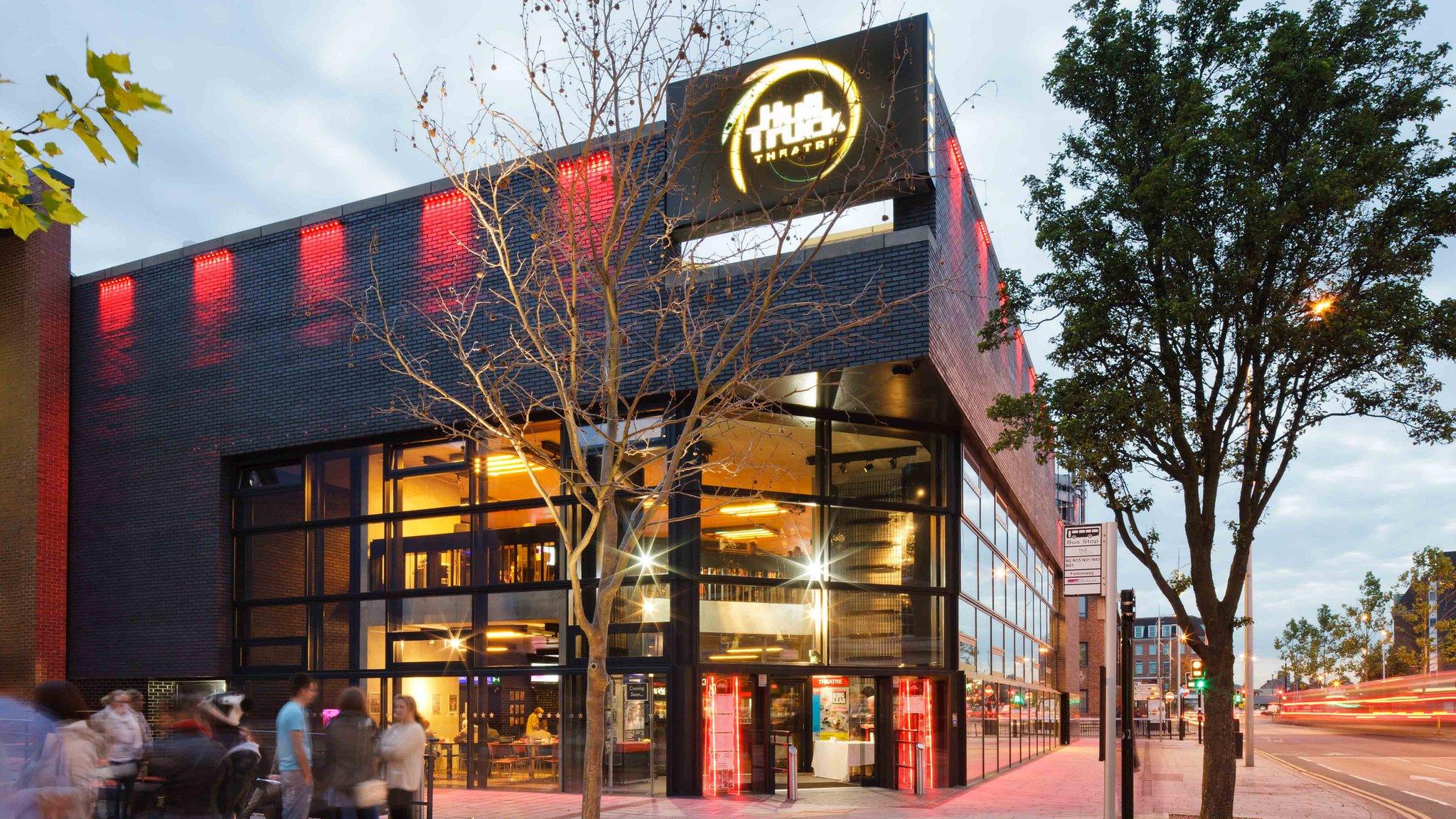
- Published18 February 2014
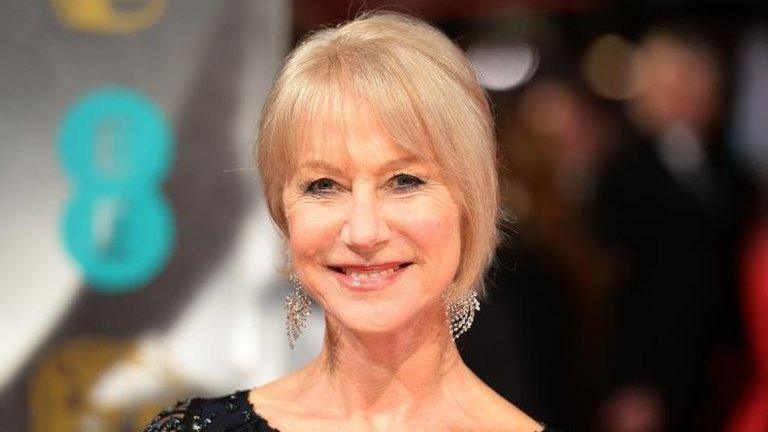
- Published20 November 2013

- Published31 October 2013
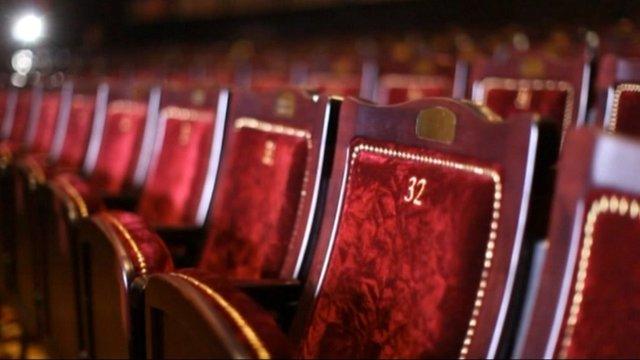
- Published26 June 2013

- Published15 May 2013
